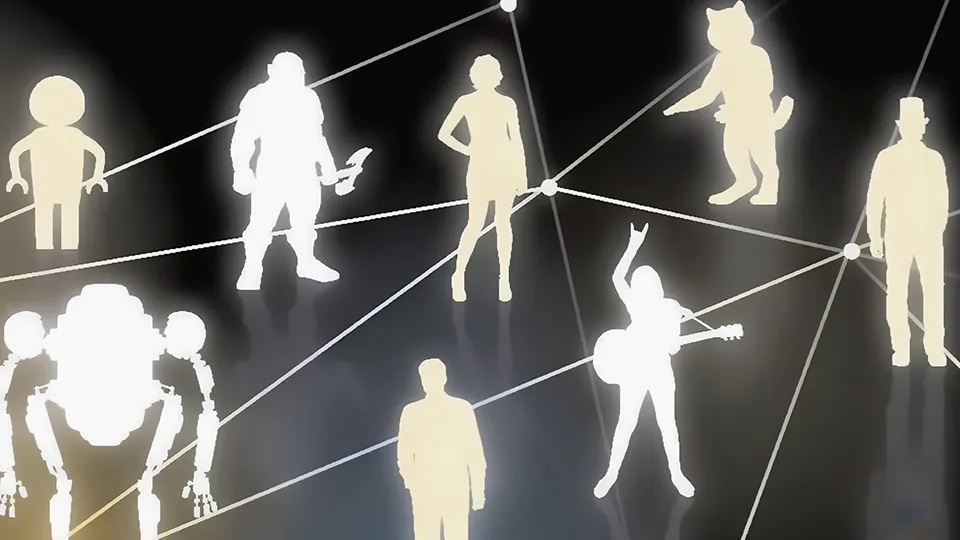For a bunch of people who spend so much of their time in massive online virtual worlds, the MMO community has been more sceptical than most when it comes to the inescapable subject of the metaverse these past few years.
Speaking for myself I can say that there are two main reasons for this, and I think they’re ones that I share with many other MMO players. They are:
- The package deal bundling of the concept with other hot tech(-bro) trends such as VR, crypto, and NFTs. The first of those is far less of a problem, but the latter two are obvious red flags.
- The various press releases and media puff pieces which time and again show a total ignorance of the many hard lessons learned over the past three decades about how online virtual worlds operate successfully.
As the current wave of metaverse hype subsides somewhat (thanks AI), Au’s book arrives at just the right time to put the whole matter into perspective and offer some guidance on where the concept can, might, and should head next.

Au, Second Life‘s first embedded reporter with two decades of experience working in virtual worlds, is the perfect guide through this topic. Making a Metaverse That Matters takes us through the entire history of the concept, which starts with Neal Stephenson seminal science-fiction novel Snow Crash, and ends with, the apparently imminent launch of Stephenson’s own metaverse project Lamina1.
It might be supposed that, having coined the term, Stephenson’s version of the metaverse would be the final say in the thing, but Au has his doubts. As he does with the virtual world to which he is mostly closely attached, Second Life.
Rather, Au argues convincingly that as much as Second Life is a metaverse, so too are games such as Minecraft, Roblox, and Fortnite, as well as VR applications such as VRChat and Rec Room. This isn’t anything new to anyone who has been following the conversation these past few years, but with the context Au provides for what exactly the oft muddy term ‘metaverse’ actually means, it finally feels like more than just an attempt by these existing pieces of software to hop on the bandwagon.
Making a Metaverse That Matters‘ greatest success is in the solutions it offers with regards to the book’s title proposal. The golden age of MMO experimentation that ended with the launch of World of Warcraft in 2004 is a long way behind us. Since then there’s been an almost exclusive focus on building upon the G part of the MMORPG acronym.
Au’s book hearkens back to the humanities-grounded thinking that inspired virtual world luminaries such as Richard Bartle and Raph Koster in defining how the digital frontier should be designed and governed. Under this line of thinking it becomes evident that Minecraft, Roblox et al, have been carrying the torch this whole time, and that the MMO genre as it is could learn a lot from their community-first approach to game design.
Koster’s own upcoming crack at a possible metaverse, the yet untitled project from his new studio Playable Worlds, is a notable omission from Making a Metaverse. Then again, offering an analysis of every announced metaverse project from the past few years would be futile, so perhaps it isn’t entirely surprising that Koster’s game didn’t find its way into the book, especially given that there isn’t any solid information on what the thing actually is yet.
What’s more, besides Meta’s Horizon Worlds, Au doesn’t dwell on any of the ‘next big thing’ duds (here’s looking at you Decentraland) that have been taking up so much of the oxygen in the room during the recent media hype cycle. Doing so would be a waste of time given that the reasons for their failure are so self-evident.
Au’s book doesn’t concern itself with MMOs all that much either, but as the exact definition between one online virtual world and another blur evermore, those looking for innovation in that genre must surely accept that it won’t come entirely from within. The lack of upcoming MMOs in the WoW-clone vein is proof that studios are once more prepared to branch out beyond the safety of that template. For those building these new worlds, Au’s book should be a guiding light whether they have aspirations of becoming the metaverse or not.
As much as those developers however, Au’s key audience may just as well be the veterans of yesteryears virtual worlds. It’s a reminder of what made our earliest online social experiences so memorable, a reassurance that the engine of innovation does still roar on, and a call-to-arms to take as much responsibility in fostering and nurturing our communities as the teams who build them.
Making a Metaverse That Matters: From Snow Crash & Second Life to A Virtual World Worth Fighting For by Wagner James Au is available to purchase now.


Leave a Reply